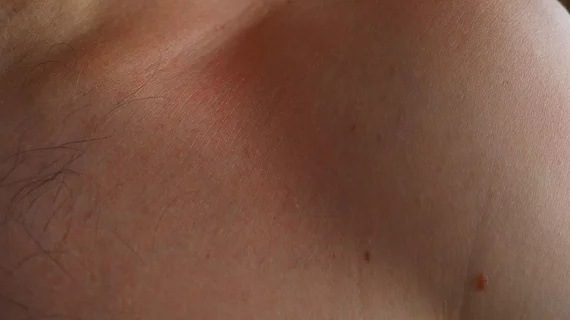Deep learning outdoes even deeply experienced dermatologists
A deep-learning algorithm trained entirely on open-source images has outperformed 136 of 157 dermatologists at classifying melanoma, according to a study running in the May edition of the European Journal of Cancer.
Lead author Titus Brinker, MD, of the German Cancer Research Center in Heidelberg and colleagues used 12,378 images from an international melanoma image archive to train a convolutional neural network (CNN).
Then they pitted the CNN against 157 dermatologists at classifying melanomas on 100 select images. The dermatologists hailed from 12 university hospitals in Germany and spanned all levels of experience.
The team found the algorithm scored higher than most of the doctors on both average specificity and average sensitivity.
Meanwhile, only seven of the 157 dermatologists had better corresponding values for specificity and sensitivity than the CNN.
Brinker et al. acknowledged several limitations in their study design. Among these was the question of whether the wording of their test for the dermatologists influenced the physicians’ interpretations vs. how they may have interpreted the images in a clinical setting with live patients to examine along with the images.
The authors cited prior research showing that such additional clinical data improve the sensitivity and specificity of dermatologists at least slightly, adding that machine learning techniques can also include this information in their decisions.
“However, even with this slight improvement, the CNN would still outperform the dermatologists,” Brinker and team concluded.
The work follows similar research with similar findings conducted at the University of Heidelberg and published last Fall in Annals of Oncology.
The new study is available online in full for free.

